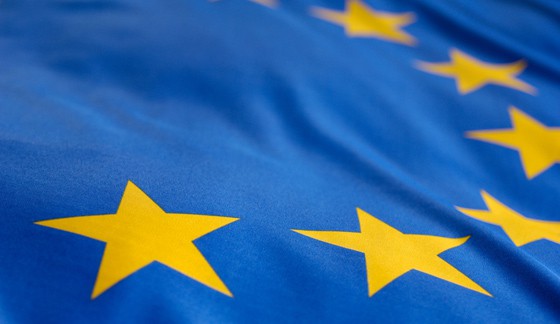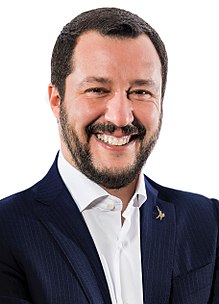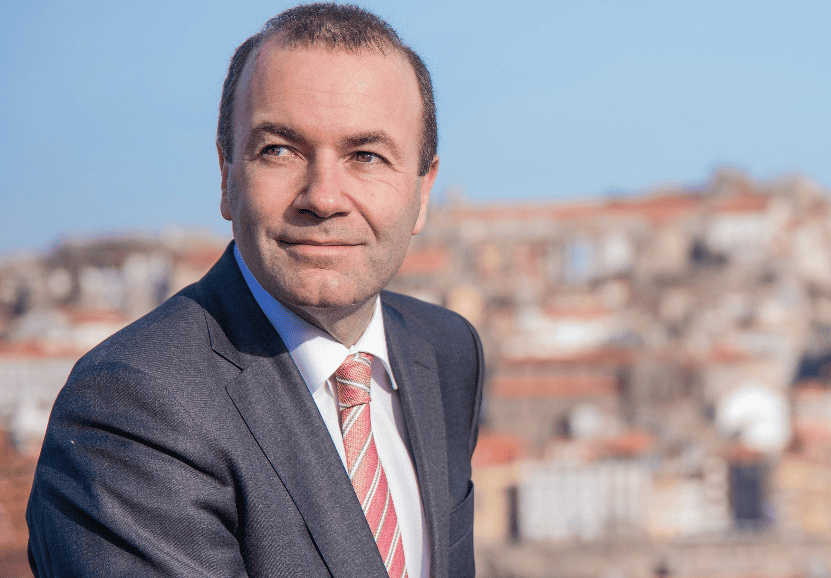
This week could be a crucial turning point in the future direction of the Europe Union, including its leadership and its big strategic priorities.
That’s because the European elections take place this week, with voting starting in some countries on Thursday and extending until Sunday, covering all 28 member states, with some 426m citizens eligible to vote.
The election will see a new European Parliament voted in, plus the election of a new European Commission, including a new President to replace the outgoing Jean Claude Juncker.
The election comes at time of great uncertainty and political instability in Europe, with the rise of populist movements across the continent disrupting the centre ground consensus. The elections are projected to produce a highly fragmented European Parliament, with the long-dominant centre-left and centre-right blocs expected to be unable to form a coalition by themselves.

Matteo Salvini
This would hand greater influence to smaller parties such as the Liberals, Greens and populists. Eurosceptic groups are expected to win as much as a third of the Parliament’s 751 seats, with Italy’s Matteo Salvini the figurehead for this movement. A crucial question is whether or not Salvini can create a pan-European Eurosceptic alliance which would act as one in Parliament. This would derail attempts by EU leaders such as Emmanuel Macron to press ahead with greater European integration and harmonisation.
There are six candidates now campaigning to be elected to the five-year term presidency: Frans Timmermans, Manfred Weber, Jan Zahradil, Violeta Tomic, Bas Eickhout and Guy Verhofstadt.

Manfred Weber
The odds-on favourite to win is German politician Manfred Weber, the current leader of the European People’s Party in the European Parliament.
Weber is campaigning on a 12-point manifesto, which ranges from creating a new European border guard, creating 5m jobs for young people, cutting outdated regulations, stopping ascension talks with Turkey – and creating a pan-European ‘masterplan to fight cancer’.
Weber’s ambitions are similar to those already set out by the European Commission as part of the Horizon Europe programme, and involves its own 10-point plan including investment in a European big data network, extra investment in R&D and universities, early detection and prevention.
Weber says in his manifesto: “Today, only 1 in 2 cancer patients survives. But if we truly pool all our knowledge and resources together, we can pursue ambitious goals so that, by combining prevention, early diagnosis and screening with personalised medicine, we could dramatically increase the survival rate of bad prognosis tumours. In paediatrics, 80% of children are cured. This is remarkable but we can do much more.”
The ambition of rekindling its leadership in research-based innovation is an important issue for Europe, which is in danger of falling behind the US and China in terms of generating world-class leaders in new technology.
The research Horizon
One key plank in building Europe’s competitiveness in research is its Horizon programme, which the European Council and European Parliament have just agreed to renew from 2021, under the name Horizon Europe.
The programme is particularly vital in health research, and six European health industry associations, including the pharma sector’s EFPIA have thrown their weight behind the new framework, which creates public-private partnerships and supports innovative industries with grants and networks.
Welcoming the agreement between EU’s member states and the Parliament, EFPIA and the other health research organisations said the draft agreement “allows our sectors to remain ambitious about a healthier future for European citizens, based on medical innovation, timely access to quality health interventions, better health outcomes for patients, and cost-effective healthcare. It is imperative for Europe to offer an attractive environment for research intensive industries, with the potential to bring innovative solutions to care givers and patients and boost local economies and growth.
There are also plans for a new “Institutional cross-sectorial Partnership” for health research and innovation, which would aim to break down the silos between different industries to accelerate the development of health care innovations.
The future of the new Horizon framework, which is due for launch in 2021, hinges on key budget talks, which will get underway later this year, once the new Commission, President and Parliament in place.
Whoever eventually lands the President job will inherit an EU at the crossroads, with the overrunning Brexit process and the populist movement distracting the remaining 27 members from economic and regulatory priorities.
In times of economic uncertainty, and often divergent ideas about the future of the EU, it’s far from certain how much the Horizon programme could get in the budget plan.
The current Commission has proposed €94.1bn for Horizon Europe, up from €77bn for the current Horizon 2020.
EFPIA and its peers have called on the Europe’s member states and the European Parliament to agree an ‘ambitious budget’ for Horizon Europe for the 2021-2027 period, which they say is vital to maintaining Europe’s competitiveness and economic growth.
The European industry organisation has launched its own manifesto for Europe, centering on three goals: drive the evolution towards patient-centered and outcomes-focused healthcare systems; improve patient access to medicines in Europe; convene a European coalition for vaccination.




